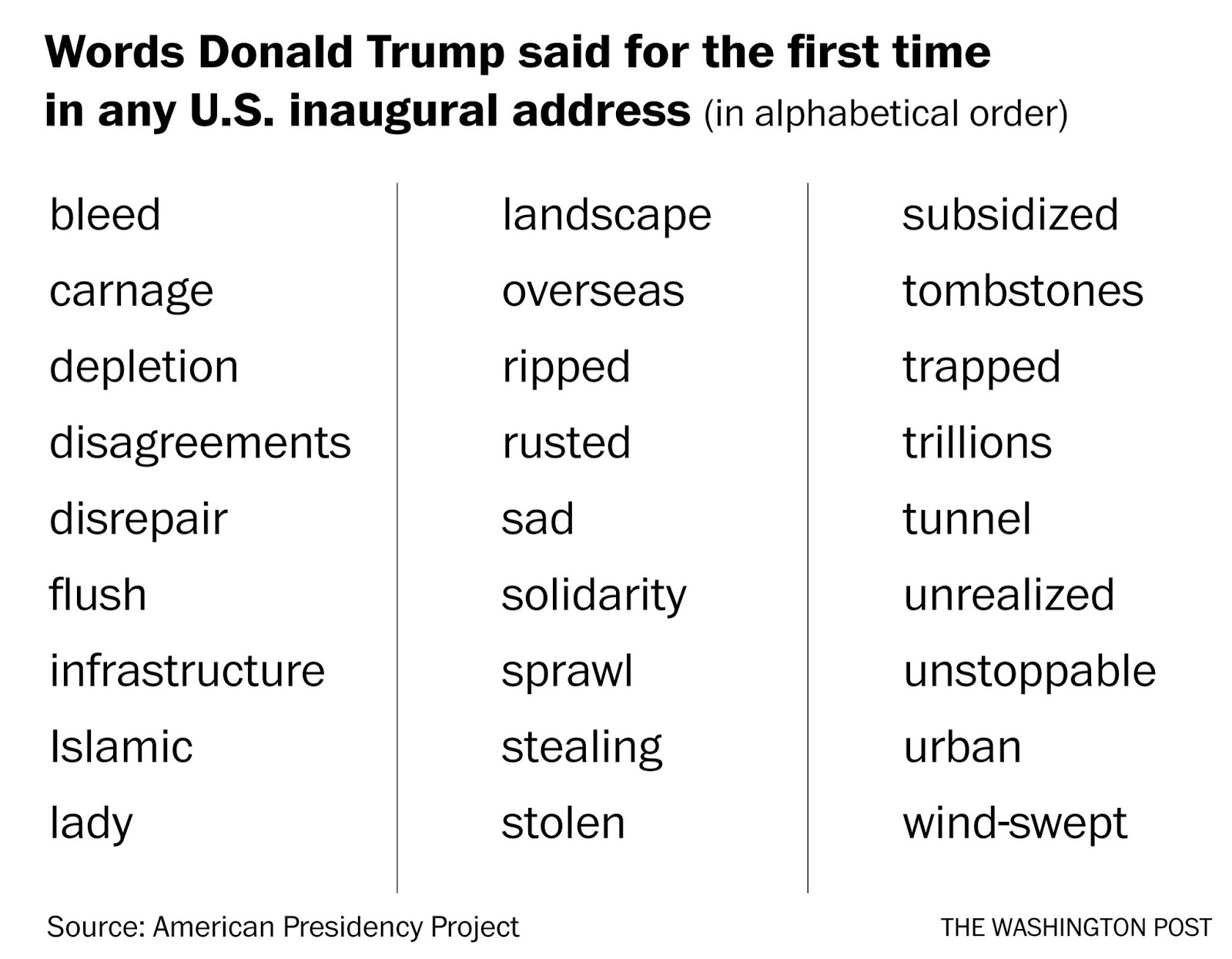de vita sua
a blog
A Millennium is 1,000 years long
by John D. Muccigrosso
There's been a lot already written about Trump's inaugural address. (Here's a good piece by James Fallows.) I'm a little surprised not to have found any comments so far on a line that struck me:We stand at the birth of a new millennium...
 "Millennium" isn't one of the "first time in an inaugural" words that Trump used yesterday.
"Millennium" isn't one of the "first time in an inaugural" words that Trump used yesterday.The idea of "ages" of civilization is a pretty old one. The Greek poet Hesiod described the now conventional "metal" ages (γένεα) of gold, silver, bronze, and iron (with some demigods thrown in for good measure) with their continual decline. The Romans too, perhaps taking their lead from the Etruscans, had their ages, saecula, which were more like centuries (the Latin word saeculum means a literal "century" as well as a less precise "age" and gives us the English "secular"). The idea was picked up by some at the beginning of the United States and, in a lightly adapted line from Vergil's fourth Eclogue, appears on the reverse of the Great Seal of the United States, and thence on our money: Novus ordo seclorum ("a new order of the ages").

This phrase also plays a role in some of the "new world order" conspiracies, but we'll leave that alone here and get back to Trump's phrase.
Both earlier inaugural uses of "millennium" make some sense in that they were referring to an actual start of a millennium. But that's a bit of a stretch for us here in 2017. While in relative terms it's now pretty early in the current millennium—and maybe it seems more so to those of us who've spent most of our lives in the 20th century—the millennium has been "born" for a while now (in its "infancy"?). But it strikes me that there is a precedent or declaring the start of a new thousand-year period, and that unfortunately is to be found in Hitler's notion of a "tausendjähriges Reich," referred to, for example, in Riefenstahl's film Triumph of the Will. This is sadly not the only bit of Nazi-related rhetoric in the speech. As has been noted repeatedly (see this March 2016 letter to the NYT), the Trump campaign's "America First" slogan, repeated in the address yesterday, has its origins in the isolationist America First movement associated with anti-Semitism.
In something apparently mostly written by Steve Bannon, former executive chair of Breitbart news, which he called "the platform for the alt-right," this is not surprising and continues the dangerous pattern of Trump's dog whistles—and worse—to the intolerant right.
Tags - politics